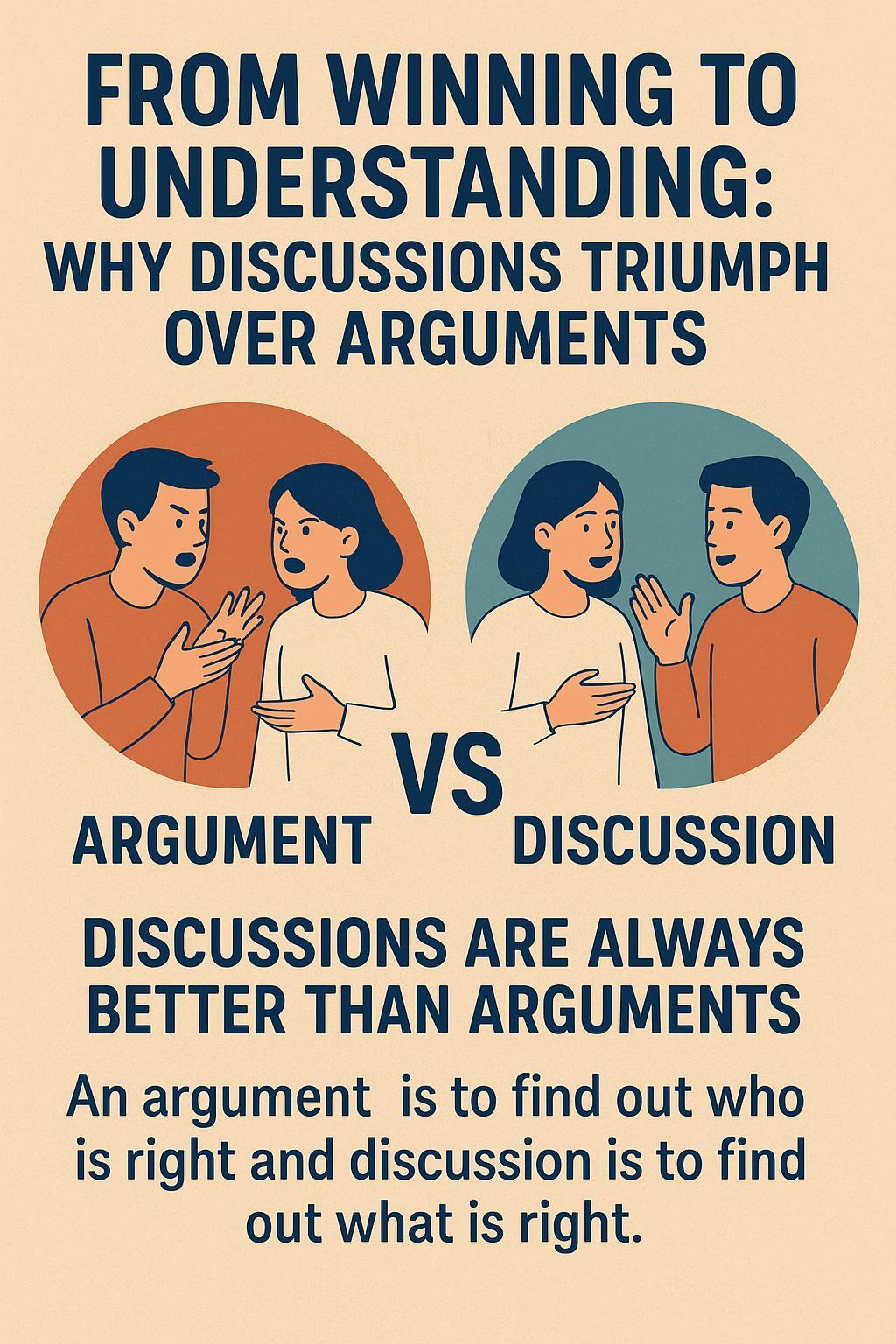
Wednesday, August 27, 2025
You Don’t Need to Be Technical. Just Informed
AI isn’t optional anymore—but coding isn’t required.
The AI Report gives business leaders the edge with daily insights, use cases, and implementation guides across ops, sales, and strategy.
Trusted by professionals at Google, OpenAI, and Microsoft.
👉 Get the newsletter and make smarter AI decisions.
Discussions are always better than argument, because an argument is to find out who is right, and discussion is to find out what is right.
Understanding the Difference
This quote shines a spotlight on two very different ways we approach communication: argument and discussion.
Argument is fueled by ego. Its purpose is to win. In an argument, people often become more concerned with proving themselves right than with seeking truth or understanding. The conversation narrows, defenses go up, and pride takes the wheel.
Discussion is fueled by curiosity. Its purpose is to learn. In a discussion, the goal is not to prove but to explore, to ask questions, and to understand another point of view. It shifts the focus from “Who is right?” to “What is right?”.
This distinction matters deeply. Arguments may produce winners and losers, but discussions create growth, connection, and progress.
Why It Matters
Discussions expand minds; arguments close them.
When you discuss, you stay open to fresh insights. An argument often locks you into your own beliefs, leaving little room for growth.Discussions strengthen relationships; arguments strain them.
Even if you win an argument, you may damage trust or respect. Discussions, however, build bridges by showing that truth matters more than ego.Discussions seek growth; arguments seek validation.
An argument says, “I already know the truth.” A discussion says, “Let’s discover the truth together.”

Context and Roots
Although the author of this quote is unknown, its wisdom echoes ancient traditions. The Socratic method, for example, emphasized dialogue and questioning as the path to truth. Similarly, modern practices in conflict resolution and emotional intelligence stress the importance of collaboration over competition in conversation.
In short, the idea isn’t new—but it is timeless.
A Reflection for the Reader
The next time you find yourself in a heated exchange, pause and ask:
👉 Am I trying to prove I’m right, or am I trying to discover what’s right?
That small shift can turn tension into understanding, frustration into growth, and conflict into connection.
📚 Resource List: Building Better Conversations
Books
Crucial Conversations: Tools for Talking When Stakes Are High – Kerry Patterson et al.
Nonviolent Communication: A Language of Life – Marshall B. Rosenberg
Thank You for Arguing – Jay Heinrichs
Articles & Guides
How to Have Difficult Conversations When You Disagree – Harvard Business Review
The Power of Dialogue – Stanford Center for Deliberative Democracy
Podcasts & Talks
The Hidden Brain (episodes on human behavior and communication)
TED Talk: “10 Ways to Have a Better Conversation” – Celeste Headlee
Practical Tools
The Gottman Institute Communication Tools
MindTools: Active Listening Guide
✅ Key Takeaway: Discussions aren’t about winning—they’re about discovering. When you trade arguments for discussions, you step into a mindset of growth, respect, and truth.



